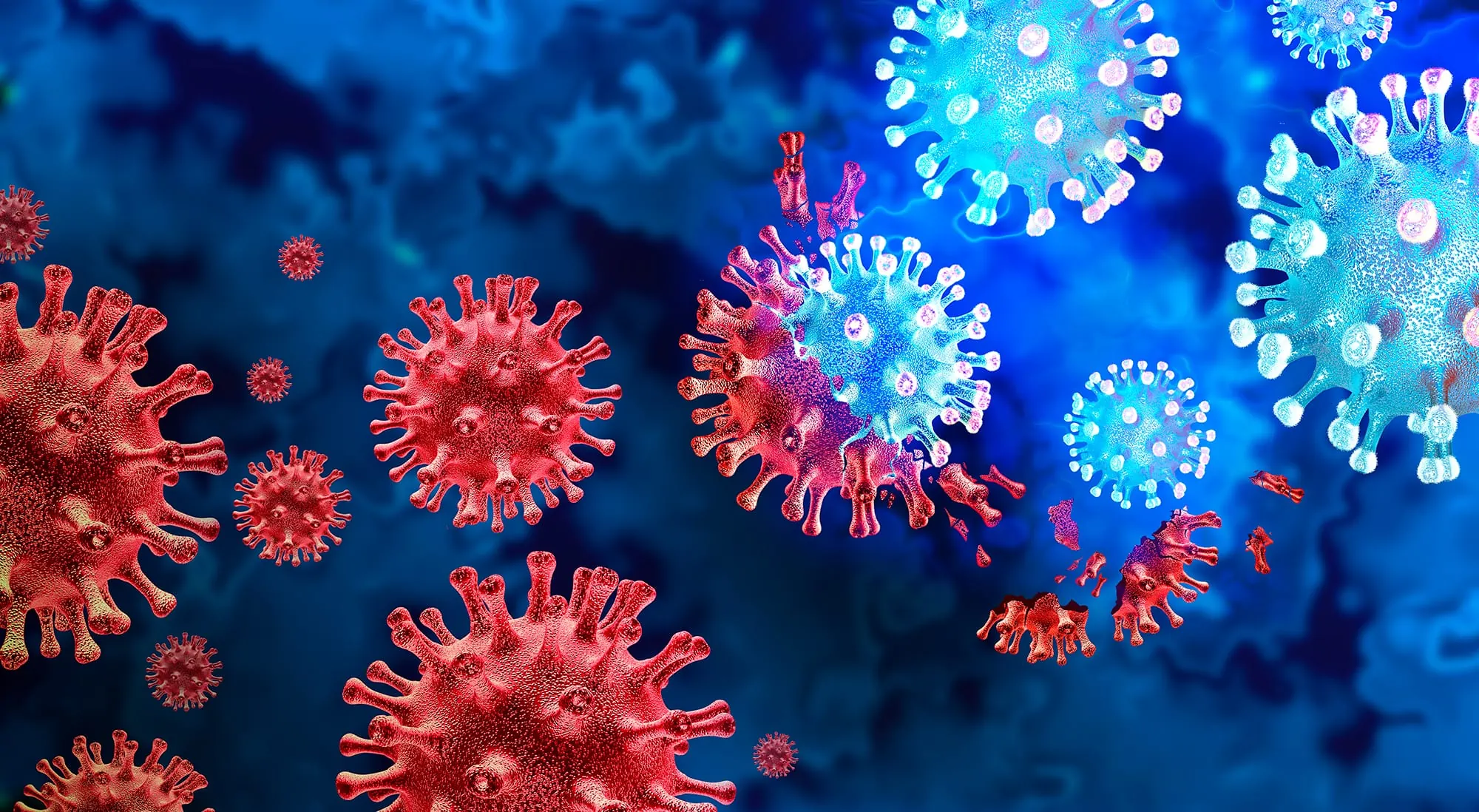LMU research results: Long-term protection against SARS-CoV-2
Professor Edgar Meinl and his team showed that functional SARS-CoV-2-specific memory B cells are detectable in the blood for a long time after COVID-19 infection.
May 2022

© istock, wildpixel
Mutating viral variants and cell mutation variants.
“Our findings are essential to the question of long-term immunity, as memory B cells can rapidly differentiate into antibody-producing cells upon reinfection – or infection after vaccination – and also evolve to better bind viral variants.”
Professor Edgar Meinl
research group leader at the Institute of Clinical Neuroimmunology of the LMU Hospital at the LMU Biomedical Center (BMC)U
In the third year of the COVID-19 pandemic, one of the central questions continues to be whether and how lasting immune protection can be achieved after an infection or vaccination. So-called memory B cells, about which comparatively little research has been done so far in the course of the pandemic, could play a crucial role in this regard.
In principle, the adaptive immune system can protect against renewed infection or disease by the same pathogen. The effect of vaccinations is based on this ability. The defense reaction requires the interaction of T cells, B cells and antibodies produced by B cells. For the development of “high-affinity” (highly effective) antibodies, the maturation of B cells in so-called germinal centers in lymphoid organs such as the lymph nodes and the spleen is crucial. In this process, two types of B cells leave the germinal centers: antibody-producing plasma cells and memory B cells.

© LMU
Professor Edgar Meinl, research group leader at the Institute of Clinical Neuroimmunology of the LMU Hospital at the LMU Biomedical Center (BMC).
While some COVID-19 patients still have antibodies in their blood 6-9 months after infection, others lose their specific antibodies. The research group of Professor Edgar Meinl at the Biomedical Center (BCM) of LMU could now show that memory B cells remain in the blood after infection with SARS-CoV-2, even if antibodies are no longer detectable. To study these memory B cells, the group collected B cells from the blood; these were differentiated into antibody-producing cells in cell culture and the antibodies produced were further analyzed. Blood cells from a total of 17 COVID-19 patients who had already recovered were examined; in five of them, specific antibodies were no longer detectable in the blood 5-8 months after infection.
In all patients, Professor Edgar Meinl and his team found SARS-CoV-2-specific memory B cells that produced antibodies of the type immunoglobulin-G (IgG), and in 11 of the 17 patients also those that produced antibodies of the type immunoglobulin-A (IgA). These antibodies blocked the binding of the viral receptor binding domain to the cellular receptor ACE-2 and had neutralizing effects against infectious viruses in cell culture, as shown in cooperation with Professor Oliver Keppler of the Max von Pettenkofer Institute, Virology, LMU.
The work thus shows that functional SARS-CoV-2-specific memory B cells are detectable in the blood for a long time after COVID-19 infection. This is of crucial importance to the question of long-term immunity, as memory B cells can rapidly differentiate into antibody-producing cells upon re-infection (or upon infection after vaccination) and evolve to better bind viral variants. The results of Professor Meinl’s team also show that the analysis of memory B cells in cell culture may be more suitable than the analysis of antibodies in blood for the detection of a passed-through infection, since these cells, in contrast to antibodies, are preserved over a longer period of time.



